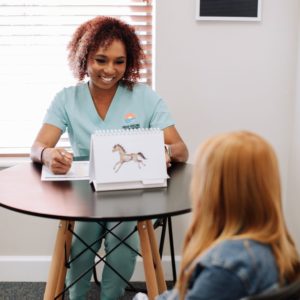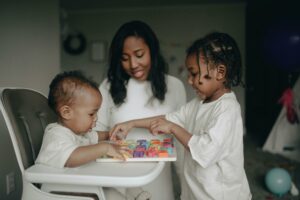Ah….the cute and adorable toddler years that bring about the s-sounds and z-sounds produced with the tongue (often referred to as “baby-talk”). Most children will outgrow this production pattern as they get older, however it is not uncommon if they don’t. Once children begin to grow in sound developments continue to occur. As a result, an overall increased intelligibility should occur as well. By ages 4 and 5, for the most part, children have increased their overall intelligibility (ability to be understood by listeners) dramatically for both familiar and unfamiliar listeners. After age 4 and a half, if errors still exist with the mispronunciation of s-sounds and z-sounds it is not a bad idea to consult with a speech language pathologist to see if intervention for your child is needed.
So what is the formal meaning behind the word lisp anyways? A lisp is a speech sound disorder that involves the distortion of specific speech sounds based upon tongue placement. There are 4 different types of lisps: lateral, interdental, palatal, and dentalized
1) Interdental- this usually involves the tongue going in between top and bottom teeth (think placement of th- sound) when making s and z sounds; this one is very common for toddlers when they are beginning to speak early on
2) Lateral- air comes off the sides of the tongue; often referred to as sounding “wet” or “slushy”
3) Palatal- middle of tongue is touching the roof of mouth when making s and z sounds
4) Dentalized- tongue pushes up against front teeth when making s and z sounds
The most common developmental lisp is the interdental lisp (i.e. yeth for yes), which most parents report to hear earlier on those toddler years. On the other hand, it should be noted that lateral and palatal lisps are not developmental lisps and children who exhibit these characteristics should advise the professional guidance of a speech language pathologist as they may be less likely to “grow out of it”. Generally most Speech Language Pathologists (SLPs) agree that early intervention is key to ensure this doesn’t become a long term habit. An SLP can make the best professional decision in terms of if your child is ready to learn placement and would benefit from therapy to correct the sounds. In terms of school based speech therapy some children will not qualify for services if the lisp does not interfere with their overall educational performance. With this in mind, your child may benefit from seeking private speech therapy services to address these errors earlier on.




